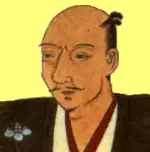Carlos, Prince of Asturias typ osobowości MBTI
Osobowość
"Jaki typ osobowości jest {profilename}? {profilename} jest typem osobowości {mbti} w mbti, {enneagram} - {iv} - {tritype} w enneagram, {big5} w Big 5, {sociionics} in Socionics."
You know, it's suggested that he might've been a psychopath, there was something seriously wrong with him mentally. As an infant, he was strangely fierce despite his fragile health conditions, and it was whispered that Don Carlos actually bit his wet nurse so hard that the poor woman carried a scar for life. His father, Philip II was something like; "Never mind, he's a child, he'll come around eventually and get better." Nope he didn't. He got worse as he grew up. He was very emotional and unstable most of the time, showed no interest in studying industriously or preparing to be a good efficient ruler. He took joy in tormenting and torturing animals and eventually servants. Philip II slowly began to show frustration and disappointment in his only son, and the tension between father and son exploded when Don Carlos was caught scheming against his father, who was one of the few people who tried to stand up for him despite his bad reputation and many enemies. In the end Don Carlos died insane, locked up by the orders of his own father. In many ways he was a bit like Joffrey in Game of Thrones; it's even similar that they were obsessed with collecting weapons and a result of genetic inbreeding(Joffrey was the result of, cough, a relationship between brother and sister. Don Carlos' parents were double first cousins.).
Biografia
Carlos, Prince of Asturias, also known as Don Carlos (8 July 1545 – 24 July 1568), was the eldest son and heir-apparent of King Philip II of Spain. His mother was Maria Manuela of Portugal, daughter of John III of Portugal. Carlos was mentally unstable and was imprisoned by his father in early 1568, dying after half a year of solitary confinement. His fate was a theme in Spain's Black Legend, and inspired a play by Friedrich Schiller and an opera by Giuseppe Verdi.
Osobowość correlate

Henry VIII of England

Anne Boleyn

Elizabeth I of England

Oda Nobunaga

Ivan the Terrible

Catherine of Aragon

Mary I of England “Bloody Mary”

Suleiman the Magnificent








